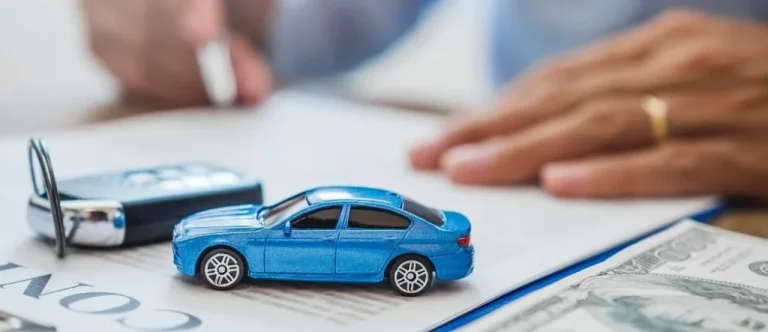No matter how comfortable you are on the road, the simple truth is that driving can be a very dangerous activity. Accidents can happen in the blink of an eye, no matter how many years of driving experience you have or how careful you are.
Whether or not you’re at fault, your accident history can follow you around longer than you realize. But, exactly how long does a car accident stay on your record? And how will it affect your auto insurance?
How Long Does an Accident Stay On Your Insurance Record?
How many years an accident stays on your insurance depends on several factors, like the severity of the offense, the frequency, and your state. Additionally, it’s important to distinguish between your driving record and your insurance record, as the effects on each are different.
How long accidents stay on your insurance record greatly depends on the severity of the accident. Generally, the more severe the infraction, the longer it’s on your record. For instance, a serious offense like a hit-and-run or DUI could stay on your record for at least 10 years, while more minor infractions may only affect your insurance for three to five years.
Your driving record, officially called a motor vehicle report, is held and managed by your state. This is where all your driving infractions, such as accidents, tickets, and other citations, are recorded. Each state has its own way of managing driver records.
vehicle impoundment, and license suspension. How long a car crash stays on your record will depend on how long your state holds onto points.
However, even if these points stay on your record for longer than five years, insurance companies don’t usually consider them after that point unless it was a very serious offense.
If you live in a state where points, accidents, or citations never fall off your record, like Montana, how long a car accident affects your insurance will be significantly shorter. If you’ve demonstrated safe driving in recent years, insurers won’t concern themselves with mistakes you may have made behind the wheel decades ago.
When getting a car insurance quote, providers will almost always ask about recent tickets or accidents, and the cutoff is usually in the past five years.
How Long Do Claims Stay On Your Insurance Record?
Typically, accidents also spawn claims. How long a claim stays on your car insurance depends on the severity and frequency of your claim, but, on average, is about three to five years. If your claim was for a severe at-fault accident, it will likely impact your insurance longer than a fender bender.
Similarly, when claims fall off insurance may also depend on which coverage you invoke. If you file a claim for your comprehensive coverage after, say, golf-ball-sized hail damages your vehicle, that claim will likely drop off your record sooner rather than later.
Claims for driving infractions will likely impact your rates longer than claims for natural disasters or perils like vandalism or theft. This is because it can take time for your insurer to trust you to make sound decisions behind the wheel again.
How Long Do Insurance Rates Stay High After Accident?
How long an accident will affect your insurance will depend on where you live, how bad the accident was, and how long you’ve been with your insurance provider. You might experience a rate increase of 50% or more after filing an accident claim for about three to five years following the accident. Increases anywhere between 10% and 80% are possible.
Usually, an at-fault accident will increase your rate more than a non-at-fault one. This is because at-fault accidents result in insurance claims against your provider. The more claims you file, the bigger risk you are to the insurance company. Thus, they will charge you more money to protect you.
If you live in a no-fault insurance state (Florida, Hawaii, Kentucky, Massachusetts, Michigan, Minnesota, New Jersey, New York, North Dakota, Pennsylvania, and Utah), your rate will likely go up since you typically file a claim with your provider after a crash in no-fault states. Thus, how long car accidents affect insurance will likely be longer, as the claim will have been filed with your insurer, not the at-fault driver’s.
How long an accident stays on your insurance record and affects your rates may not be long if it’s your first. If you’ve been a loyal customer without any claims for a long time, a company may not raise rates after a minor collision. But, if you start racking up accidents and claims in a short time, expect an increase in premiums, or your company to not renew your policy.
If your insurance provider offers accident forgiveness (which sometimes costs extra each month), your insurance rates may not change after you have an accident, either. In some cases, accident forgiveness can only be used once over a set period (or for the life of the policy). So if you’re involved in another accident, it may not be able to help you.
In some cases after a crash, the cost of your coverage may get raised, but you could lose your safe driver or accident forgiveness discount. So, you’ll still end up paying more for coverage as a result as long as accidents are on your insurance.
Long story short, car insurance and accident history go hand in hand; as you rack up more accidents, your premiums get higher and higher.
How Long Does an At-Fault Accident Stay On My Insurance Record?
Typically, when accidents fall off insurance depends on who is deemed at fault. When the policyholder is at fault, an accident may stay on your insurance record much longer, as it provides insight into your decision-making behind the wheel.
Usually, how long an at-fault accident affects your insurance rate is longer than an accident where you’re the victim. This is because at-fault accidents result in insurance claims against your provider. The more claims you file, the bigger risk you are to the insurance company. Thus, they will charge you more money to protect you.
Also, insurance companies tend to consider single-car accidents you’re involved in as at-fault accidents. For instance, if you swerve off the road into a tree or light post, even though no one else is involved, you’ll still likely be at fault in the eyes of insurers.
Thus, how long until accidents fall off your insurance, even if you don’t cause damage to someone else’s vehicle, may be determined by how trustworthy your insurer deems you behind the wheel.
When Does a Car Accident Come Off Insurance?
When a crash comes off your history depends on several details about the crash, like the severity of the accident and who was considered at fault.
When it comes to your driving record, it doesn’t matter if an accident is technically your fault or not, as it’ll be recorded on your motor vehicle report regardless. But, it matters to your insurer. Of course, if another driver hits you, insurance companies will have access to this information to differentiate between an accident you may have caused and one you were simply involved in.
If you’re issued a traffic ticket or a citation after being involved in a driving accident, this information will appear on your accident history as well. Just like the record of the accident, the average traffic citation will stay with you for three years before falling off. Again, the finer details of your accident history vary based on the state you live in, and insurers typically don’t worry about them beyond three to five years.
Thus, how long a chargeable accident stays on your insurance may be longer than, say, an honest fender bender.
When Does an At-Fault Accident Come Off Insurance?
How long for an accident to come off insurance if you’re at fault will be longer than if you were the victim or if it was a single-car accident. Though it typically takes between three and five years for an accident to come off your insurance history, if it was an at-fault accident or a particularly severe single-car accident, it may stay on your record longer.
When wrecks do go off insurance, it’s because your insurer trusts you to make good choices behind the wheel. When rates go up following an accident, you’re compensating for the distrust you caused when you caused an accident. If, over time, you can prove that you can be trusted behind the wheel, your rates will drop, and eventually, the accident will fall off your insurance history.
The editorial content on Clovered’s website is meant to be informational material and should not be considered legal advice.




